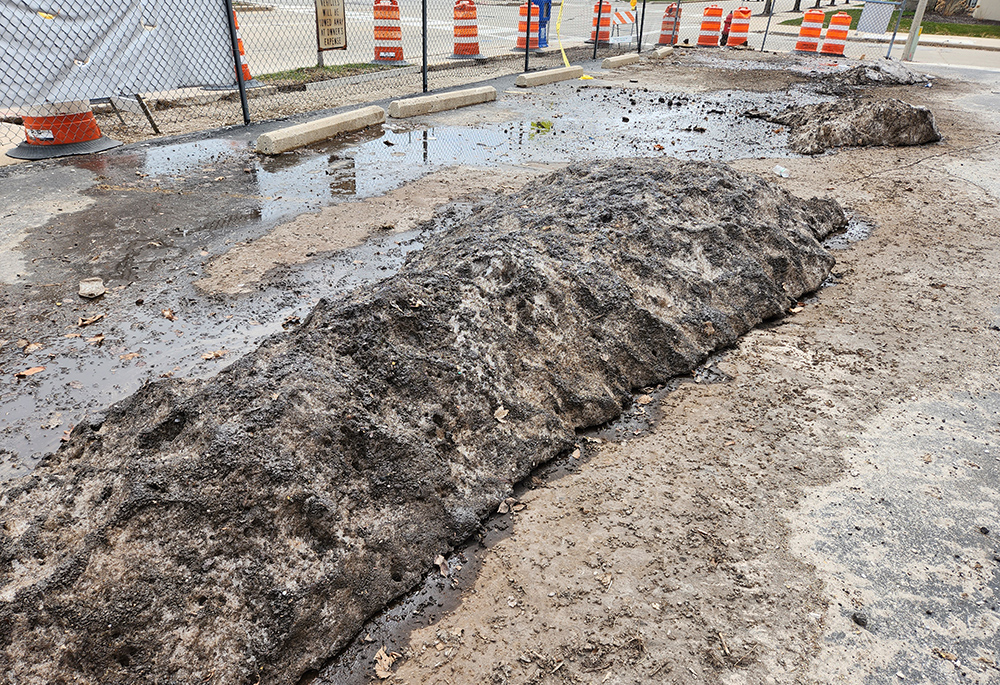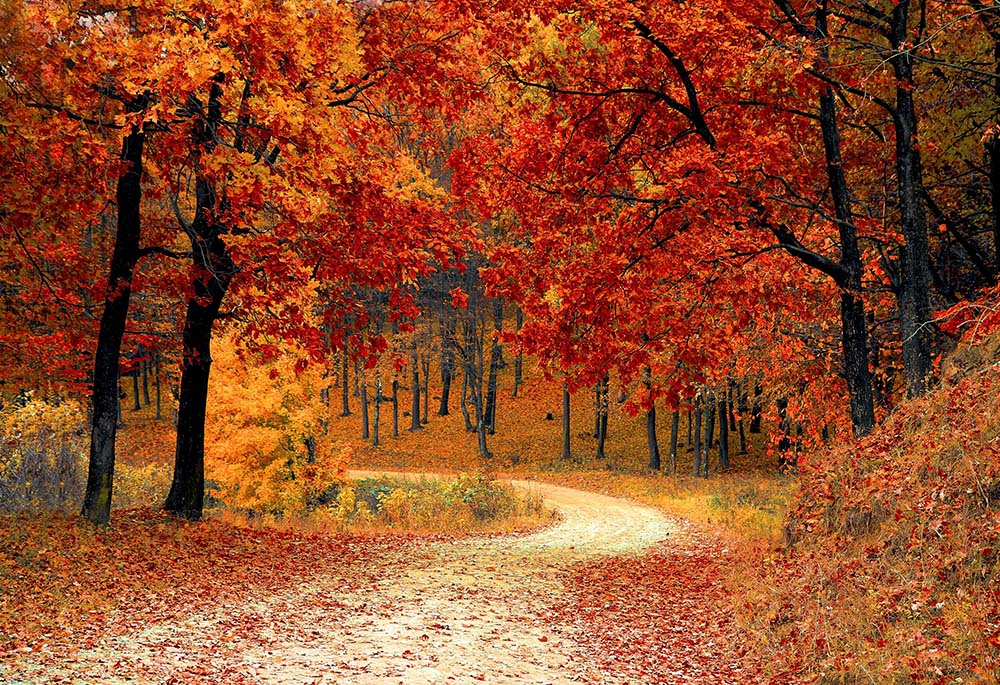
"As the seasons are changing, I'm finding myself being more attentive to the transition time … and while it is necessary, there's nothing pretty about it," Jane Marie Bradish writes. "Melting snow leaves behind dirt and garbage that was collected in the plowing process." (Jane Marie Bradish)
I'm blessed to live in a part of the world where we experience all the seasons of nature. Sometimes that happens all in the same day, but that's another story. As the seasons are changing, I'm finding myself being more attentive to the transition time … and while it is necessary, there's nothing pretty about it.
Melting snow leaves behind dirt and garbage that was collected in the plowing process. It is messy and ugly and clogs drains. The leftover messes result in spring rains flooding yards and streets and the creation of mud. Eventually it all gives way to new growth and blooms, but not without significant effort to clean up the mess. Transition from winter to spring.
Snow piles give way to rain and hail and tornadoes. It's a difficult and dangerous transition. Wind and water can do tremendous damage to structures and nature. Eventually the weather calms and warms and the growing season commences. Transition from spring to summer.
The growing season requires light and water and temperature in right proportions at the right times, and everything about it is beyond human control. Late or early freezes are always a concern. Farmers can lose their life's work if the weather "doesn't cooperate." The growing season is short and intense and the harvest comes quickly. Transition from summer to fall.
Harvest quickly gives way to cleanup, preparing the land for dormancy and a chance to regenerate. Old growth is cut back or plowed under. What was once lush becomes dry and dusty and muddy. Transition from fall to winter. And then it starts all over again.
I love snow and never complain about a snowfall, even when shoveling or plowing. The first appearance of anything green in the garden brings a smile. Watching flowers bloom and picking a few vegetables is always a delight. The colors of fall take away the sting of the coming dark and cold. The joy that snow and blooms and harvest and fall colors bring helps take the sting out of the work of transition — getting from one season to another.

(Pixabay/Valentin)
It's not just the changing seasons that bring transitions. All of us face transitions on a regular basis. Some minor and some major. Some planned and some surprises. Some are welcome, others not. I'm sure anyone living in the United States of America recalls the events of Jan. 6 2021, an effort to undermine the peaceful transition of power of the federal government.
Think for a moment what Vatican II did to liturgy, not to mention religious life. And while not nearly as drastic, liturgy was significantly revised again in 2011. I was not alive for the first one, and the latter still trips me up from time to time. But for growth to happen, change must happen.
It's those in-between times, transition times, growth times, that are bothering me right now. We all have them, probably more frequently than we name. What we do with the messy transition time is what seems to matter most. And transition is that growing time. Sometimes I embrace it and sometimes I push it away.
Advertisement
Embrace: I minister in a school, and the beginning of every school year is a time of transition — some staff and students have left and others have joined. It takes a while for all of us to coalesce (?) as a community. New members give us the opportunity to examine and explain why and how we do what we do. For returning folks this can be a time of unease, if we've been doing what we do less than mindfully. It's sometimes hard not to get defensive when people begin questioning every (little) thing. Remembering that the questions are a way to understand can dispel the defensiveness.
Push away: Parts of my life are in transition, and I'm not liking it one bit. For example:
- My ministry responsibilities are changing — I've had five different roles in the last four years;
- My longtime spiritual director has died. She had the perfect combination of compassion and push;
- A chronic condition has stopped me from participating in various activities I enjoy.
I'm comfortable with things the way they are: That, right there, is the issue! If not pushed to change, I will not grow. And we all know when growth stops — death begins. I'll admit, it is taking me a long time to embrace this transition time.
The good news, as I see it, is that transition is a natural process. I'm not alone either. Yes, my ministry will be different, but the place of ministry hasn't changed and I know I have the support of the administration and my friends. My spiritual director teased — but in a "you need to do this" kind of way — that she had a person picked out for me … to replace her. I know the person she chose and I can see us working together, albeit differently. There are things I can no longer do, but that opens the door to explore other options — including things I've not thought of doing before.
I have to accept the fact that like the changing of seasons, my personal transitions could have bumps along the way. As long as I stay "in process," keep working the transitions, I'll keep growing — think of the potential!





